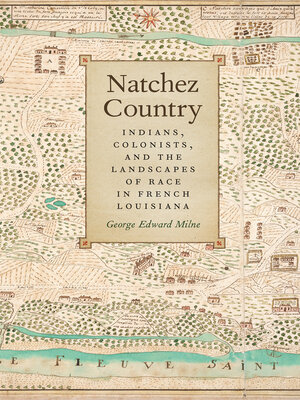Natchez Country
ebook ∣ Indians, Colonists, and the Landscapes of Race in French Louisiana · Early American Places
By George Edward Milne

Sign up to save your library
With an OverDrive account, you can save your favorite libraries for at-a-glance information about availability. Find out more about OverDrive accounts.
Find this title in Libby, the library reading app by OverDrive.



Search for a digital library with this title
Title found at these libraries:
| Library Name | Distance |
|---|---|
| Loading... |
At the dawn of the 1700s the Natchez viewed the first Francophones in the Lower Mississippi Valley as potential inductees to their chiefdom. This mistaken perception lulled them into permitting these outsiders to settle among them. Within two decades conditions in Natchez Country had taken a turn for the worse. The trickle of wayfarers had given way to a torrent of colonists (and their enslaved Africans) who refused to recognize the Natchez's hierarchy. These newcomers threatened to seize key authority-generating features of Natchez Country: mounds, a plaza, and a temple. This threat inspired these Indians to turn to a recent import—racial categories—to reestablish social order. They began to call themselves "red men" to reunite their polity and to distance themselves from the "blacks" and "whites" into which their neighbors divided themselves. After refashioning their identity, they launched an attack that destroyed the nearby colonial settlements. Their 1729 assault began a two-year war that resulted in the death or enslavement of most of the Natchez people.
In Natchez Country, George Edward Milne provides the most comprehensive history of the Lower Mississippi Valley and the Natchez to date. From La Salle's first encounter with what would become Louisiana to the ultimate dispersal of the Natchez by the close of the 1730s, Milne also analyzes the ways in which French attitudes about race and slavery influenced native North American Indians in the vicinity of French colonial settlements on the Mississippi River and how Native Americans in turn adopted and resisted colonial ideology.







